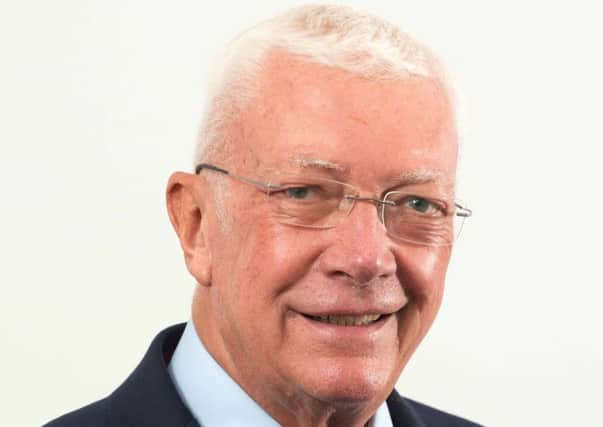Bill Brackenridge: I've got no complaints at end of my term as Chair


Reflecting on the changes that have shaped my term as Chair, I am particularly proud that we have remained focused on delivering that agenda of positive change.
We were established in 2008 amid recognition that there was a need for an independent arbiter of complaints. The legislation which established us reflects this – its Chair must be a ‘lay member’ and while the Board is composed of legal and ‘lay’ members, the majority must be ‘lay’.
Advertisement
Hide AdAdvertisement
Hide AdPerhaps surprisingly, discussions have rarely been ‘lawyer vs lay member’. I will miss those rich and analytical discussions, drawing on different experiences and interpretations of widely framed professional standards.
The SLCC exists to provide a service for the public. That’s a role that we cannot properly undertake without the public being aware of the right to make a complaint about a lawyer and where to go, should that need arise.
Despite encountering some resistance to the idea that we should be raising awareness, we remained committed. I am proud to say that the SLCC is now actively reaching out to those who may need its services through our public awareness campaign.
In addition to looking at what we could to speed up resolution and improve efficiency, we realised that we also needed to address the root cause of complaints. To do this, we needed to understand the most common causes of complaints and disseminate that information as widely as possible with a view to preventing complaints through shared understanding.
During my term as Chair, we started publishing anonymised case studies of all our formal determinations. We are now also producing ‘twin guides’: paired consumer guides and practitioner guides on different business areas. The overall aim – as well as enhanced transparency – is to help lawyers recognise earlier in our process the kind of situations that could ultimately progress into upheld complaints and, more importantly, how this outcome can be avoided.
We have also renewed our focus on outreach to the profession. This has seen the Oversight team step up engagement, presenting to hundreds of legal professionals and students across Scotland every year, and finding new platforms for engagement.
One of the achievements of which I am most proud relates to the establishment of an independent consumer panel and hence the rebalancing of the SLCC’s formal influencers.
Linked with this, we have become more focused on the people who use our services. We now use the concept of the Customer Journey to map our work from the perspective of both the consumers and the lawyers who use our service. In recent years, this has influenced every aspect of our work.
Advertisement
Hide AdAdvertisement
Hide AdLike many of our stakeholders, we recognise that the system doesn’t always work as well as it might. At the moment, the process is the same for a £20 issue as it is for a £20,000 complaint.
We have developed a vision for what a more proportionate and efficient approach to legal regulation should look like (#ReimagineRegulation).
I’m pleased that, as I depart, important changes are on the horizon. The Review of Legal Services which was announced earlier this year will look at how legal service regulation can best serve the public and all those who are impacted by it.
I would encourage anyone who shares a commitment to the principles of fairness and access to justice to put themselves forward for the opportunity to steer the SLCC through the next five years. You will have a committed and engaged senior management team and a highly capable staff ready to support you in delivering your vision for the next phase of the SLCC’s history.
Bill Brackenridge is Chair of the Scottish Legal Complaints Commission